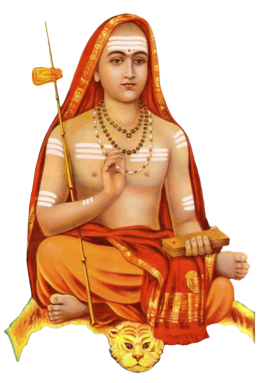तथा भेदता बुद्धिभेदेषु तेऽपि ।
यथा चन्द्रिकाणां जले चञ्चलत्वं
तथा चञ्चलत्वं तवापीह विष्णो ॥ १२॥
tathā bhedatā buddhibhedeṣu te’pi .
yathā candrikāṇāṃ jale cañcalatvaṃ
tathā cañcalatvaṃ tavāpīha viṣṇo .. 12..
English Translation and Notes based on the Bhashya of Sri Sankara
Translated by S. N. Sastri
A crystal appears red when it is in the proximity of a red piece of cloth, green when in contact with a green piece of cloth and so on. By itself it is colourless, but takes on the colour of the substance with which it is in contact. A substance which imparts its quality to another thing in contact with it is called an ‘upadhi’.
This upadhi is what is known as the limiting adjunct. The crystal which is colourless takes on different colours according to the limiting adjunct. Similarly, Brahman or the Self which is changeless, appears to take on the attributes of the intellect (or mind) in which it is reflected. The reflection of Brahman in the intellect is the Jiva or individual soul. The Jivas, as such, appear to be different from one another, but this difference is due only to the intellect which is the upadhi or limiting adjunct. In essence, every Jiva is Brahman who is changeless.
Hastamalakiyam – Verse 12 – Hastamalaka-12-upādhau yathā – In Sanskrit with English Transliteration, Translation, Meaning and Bhashya – Commentary by Sankaracharya – Hastamalakiyam-12

